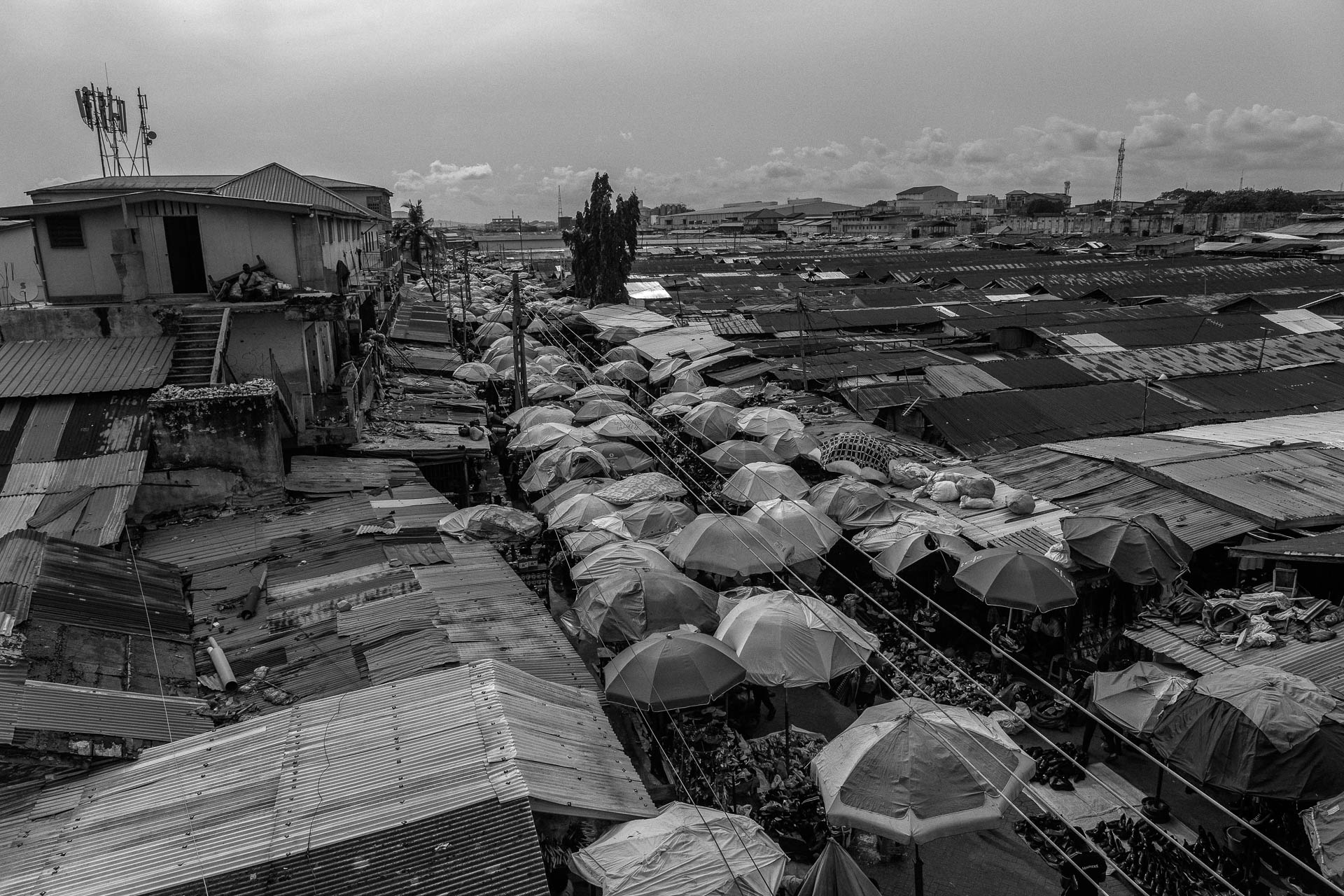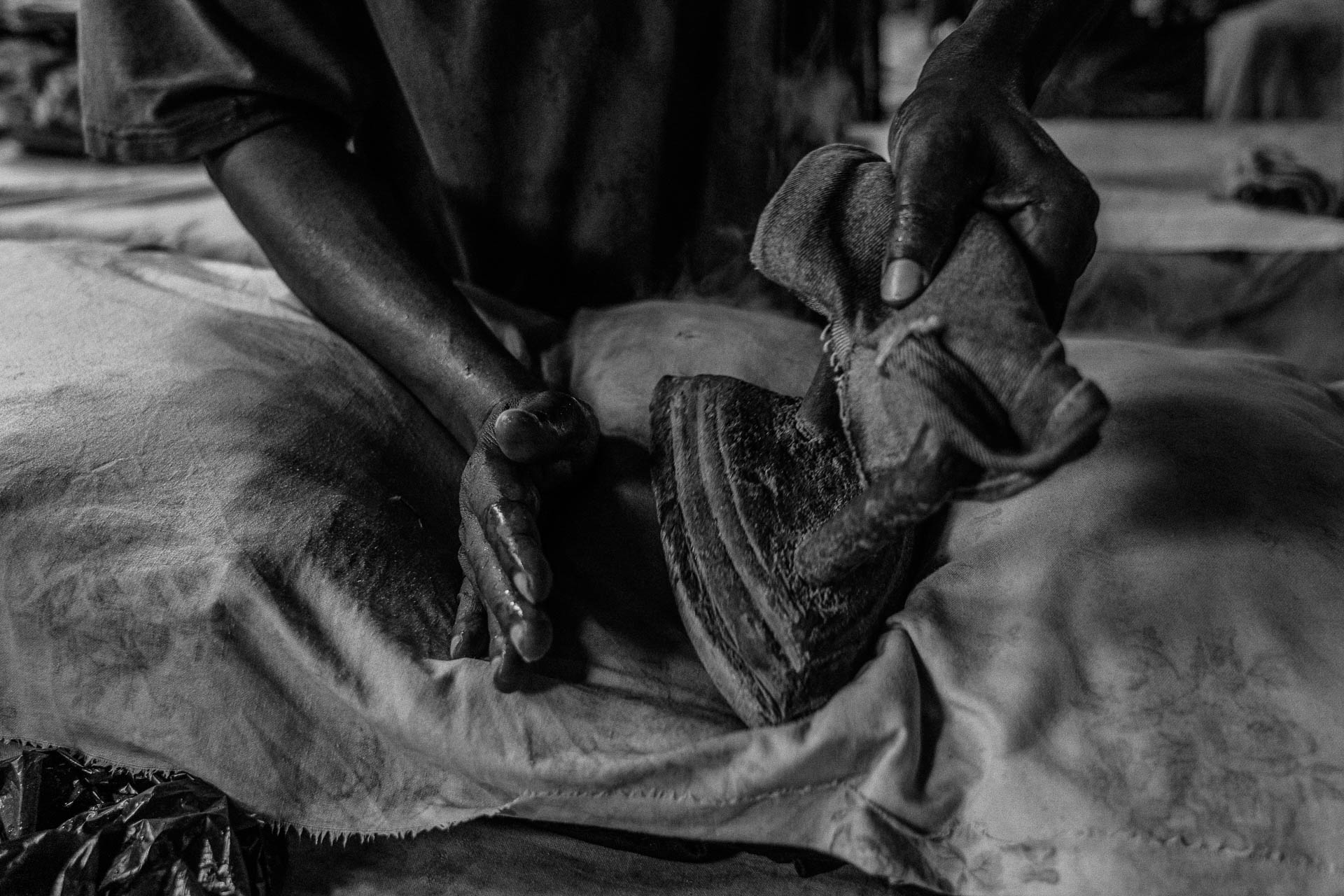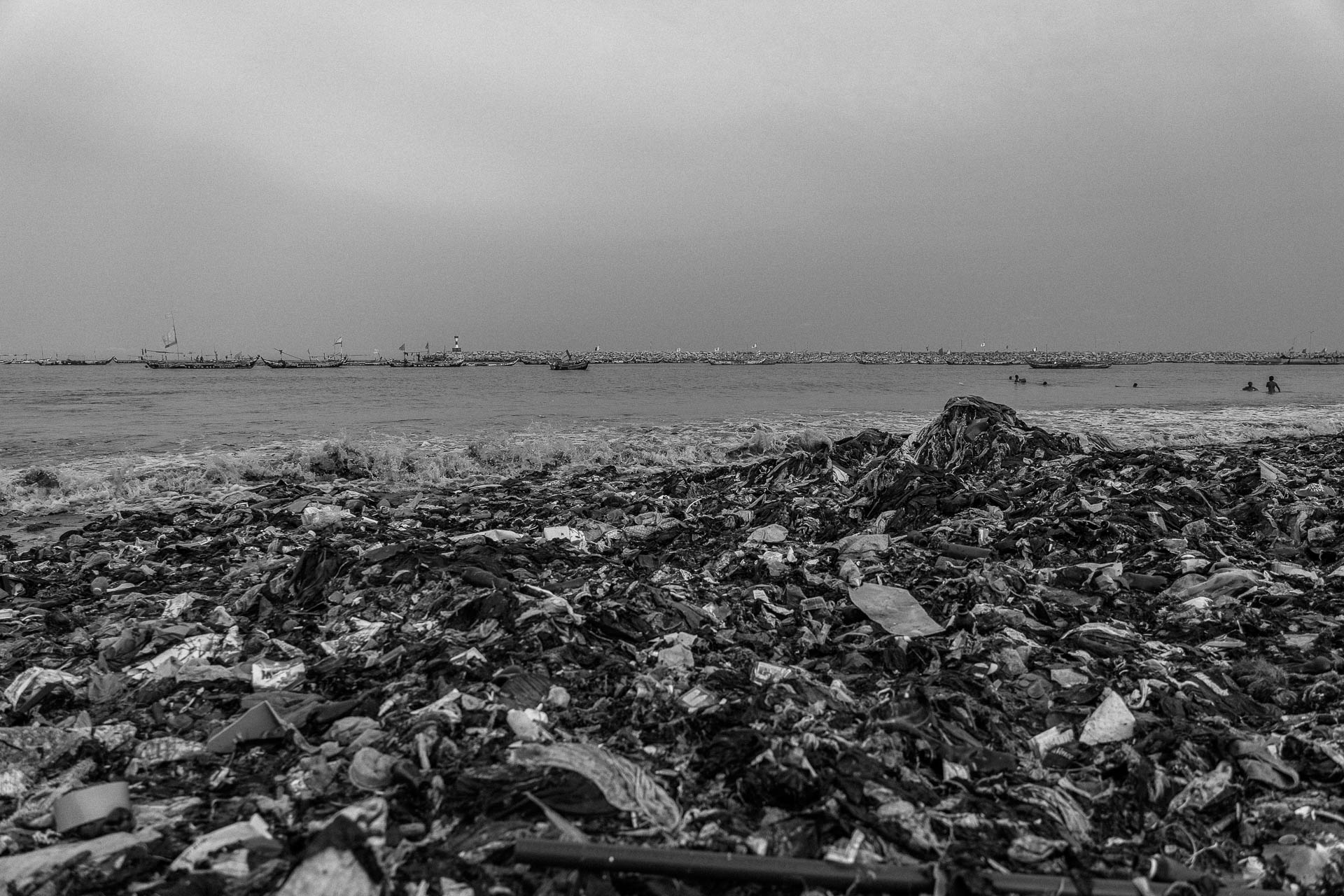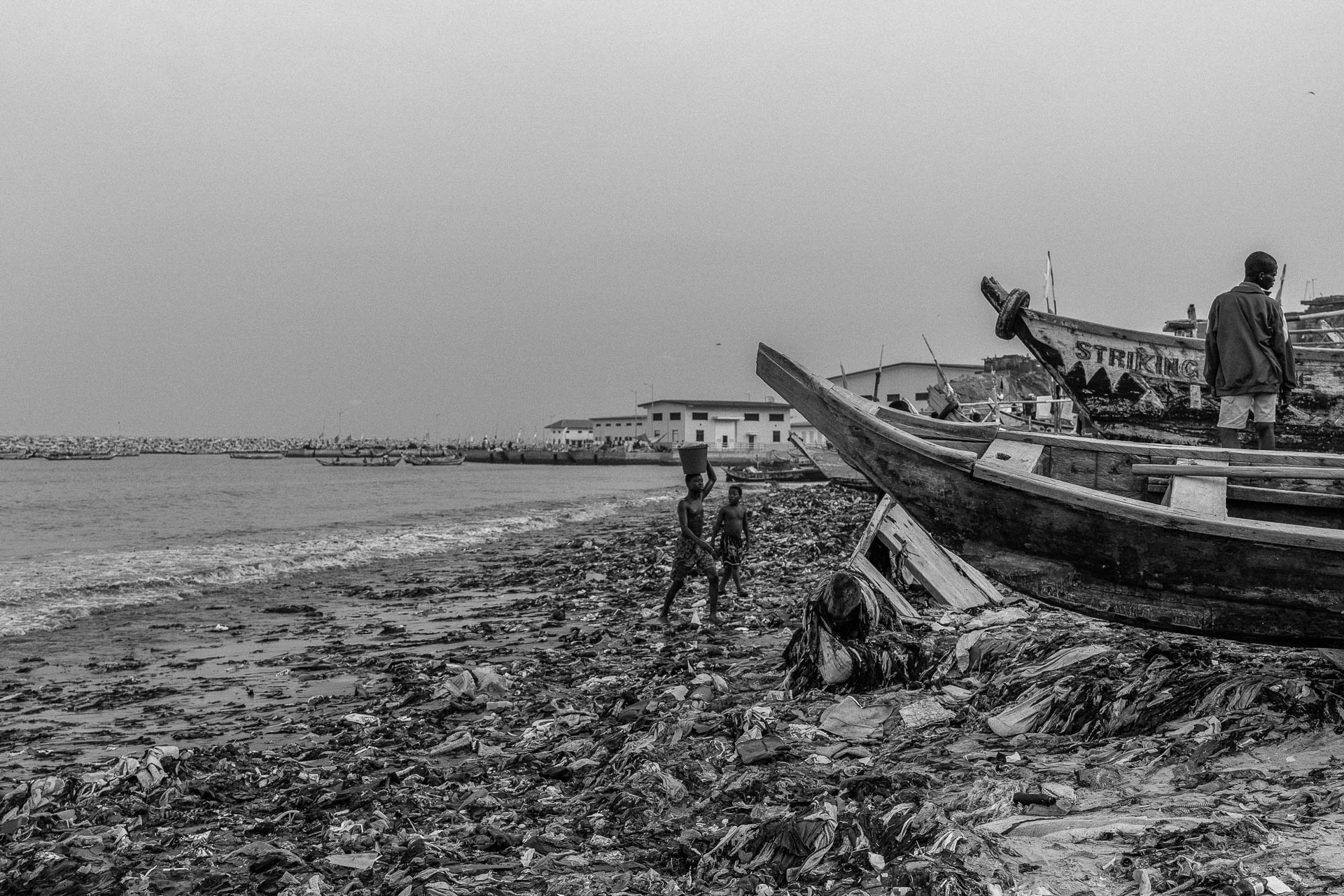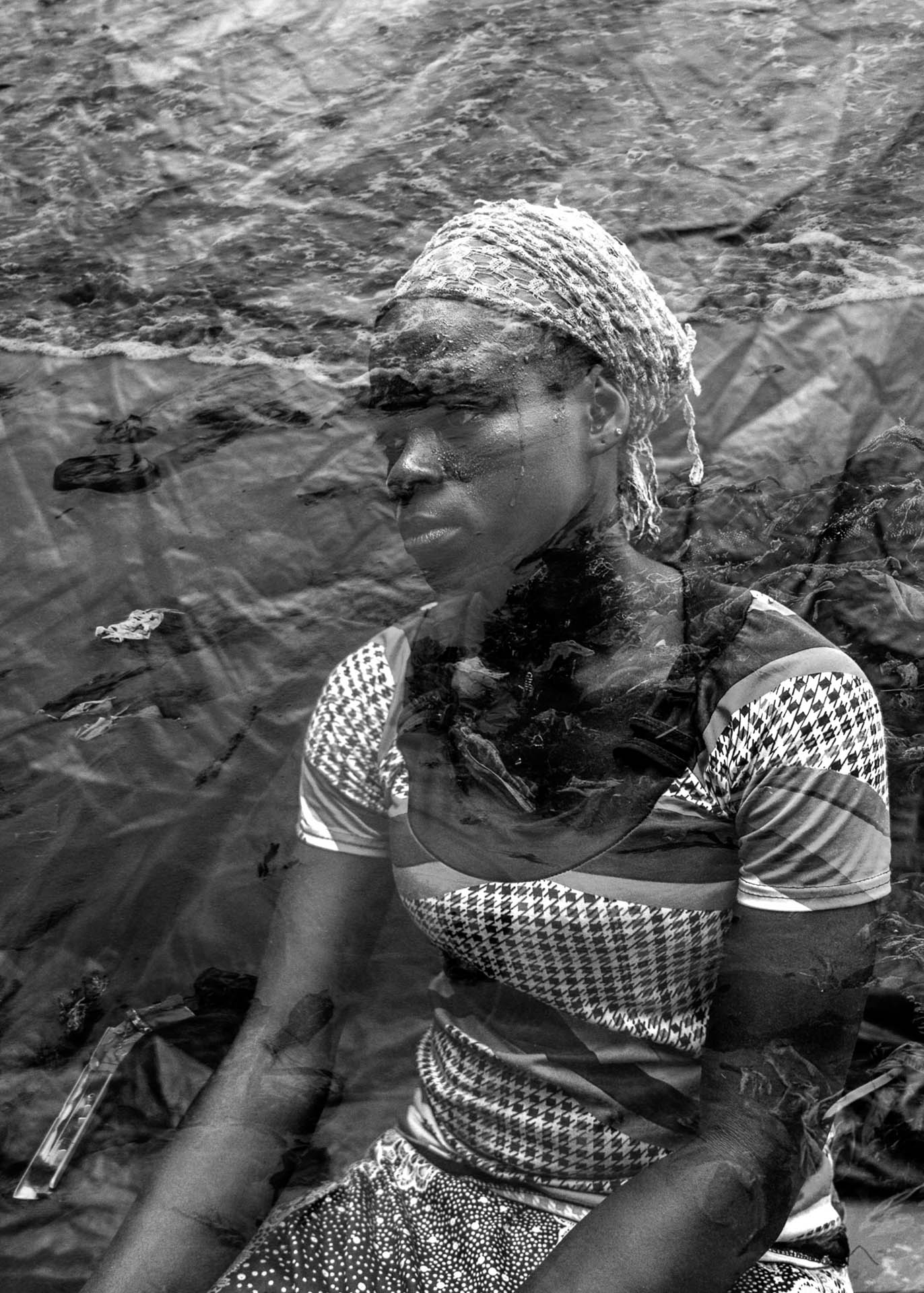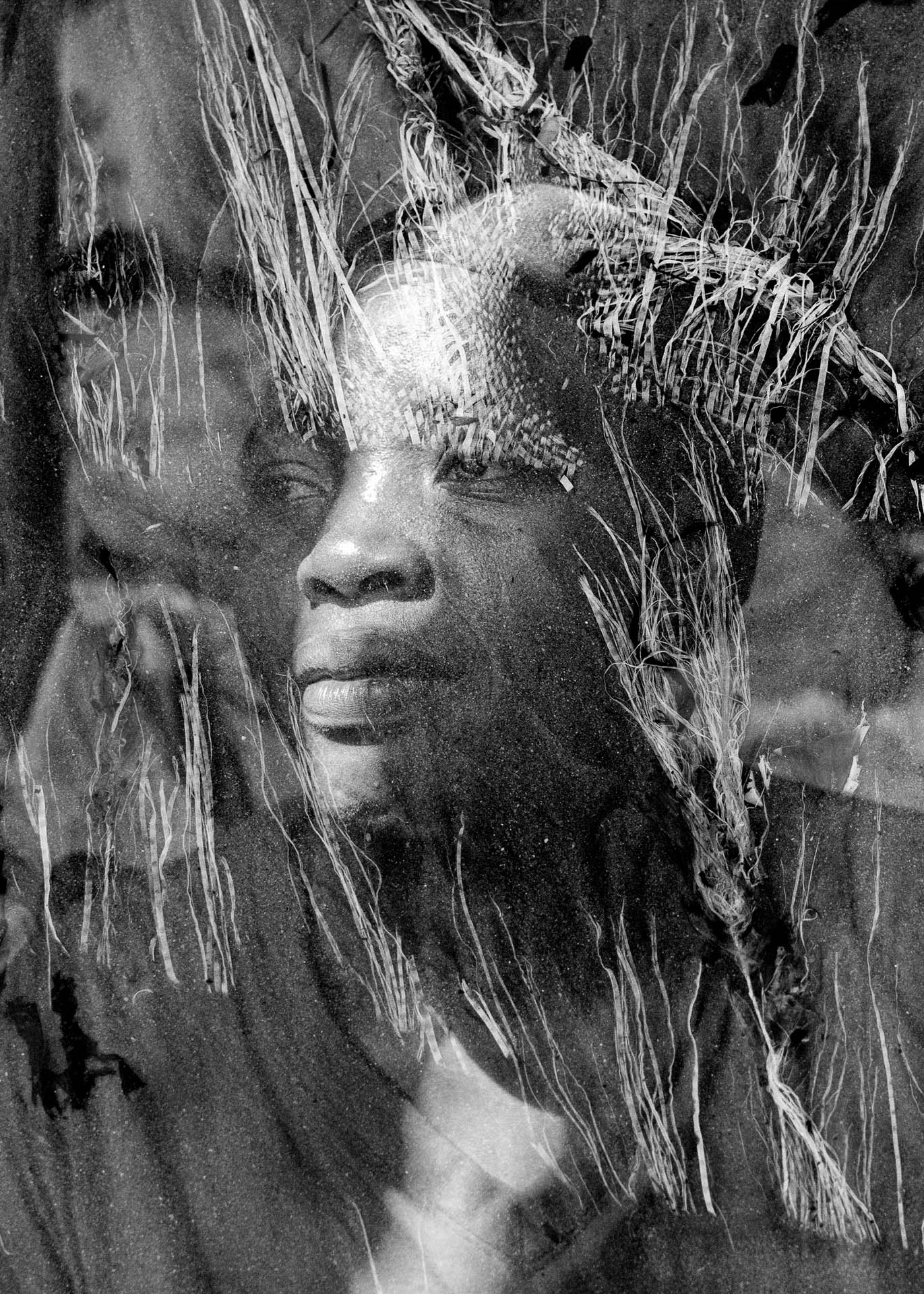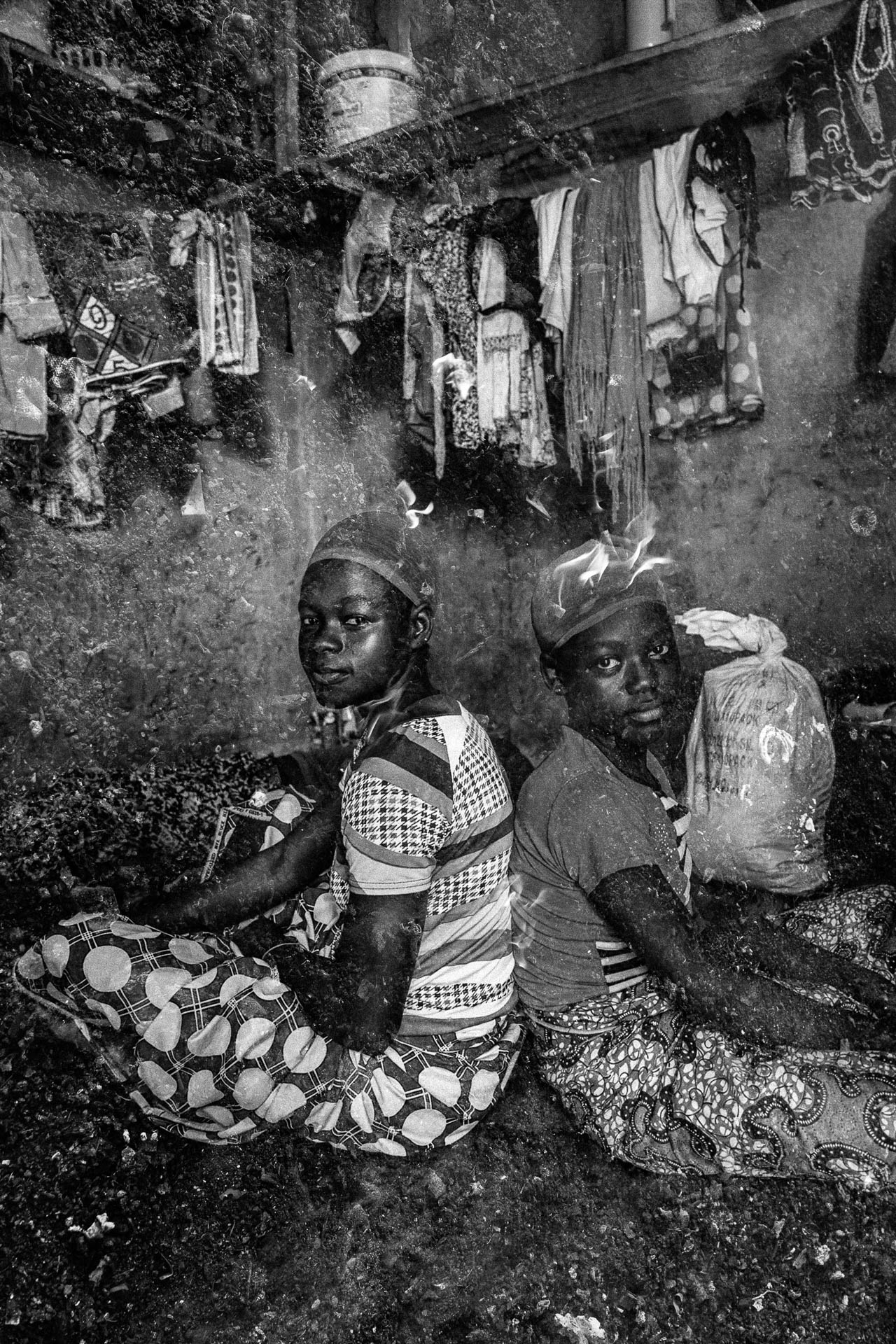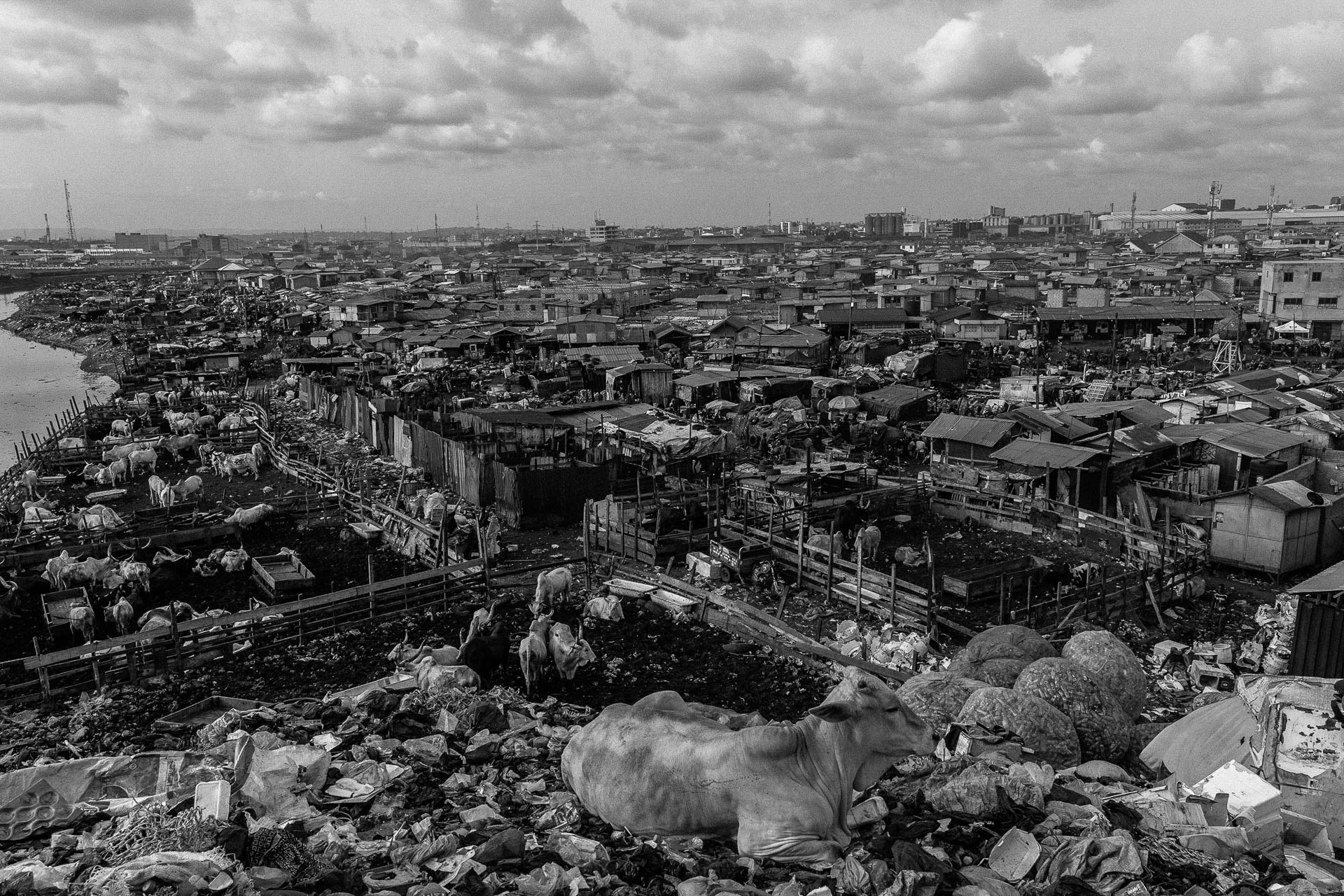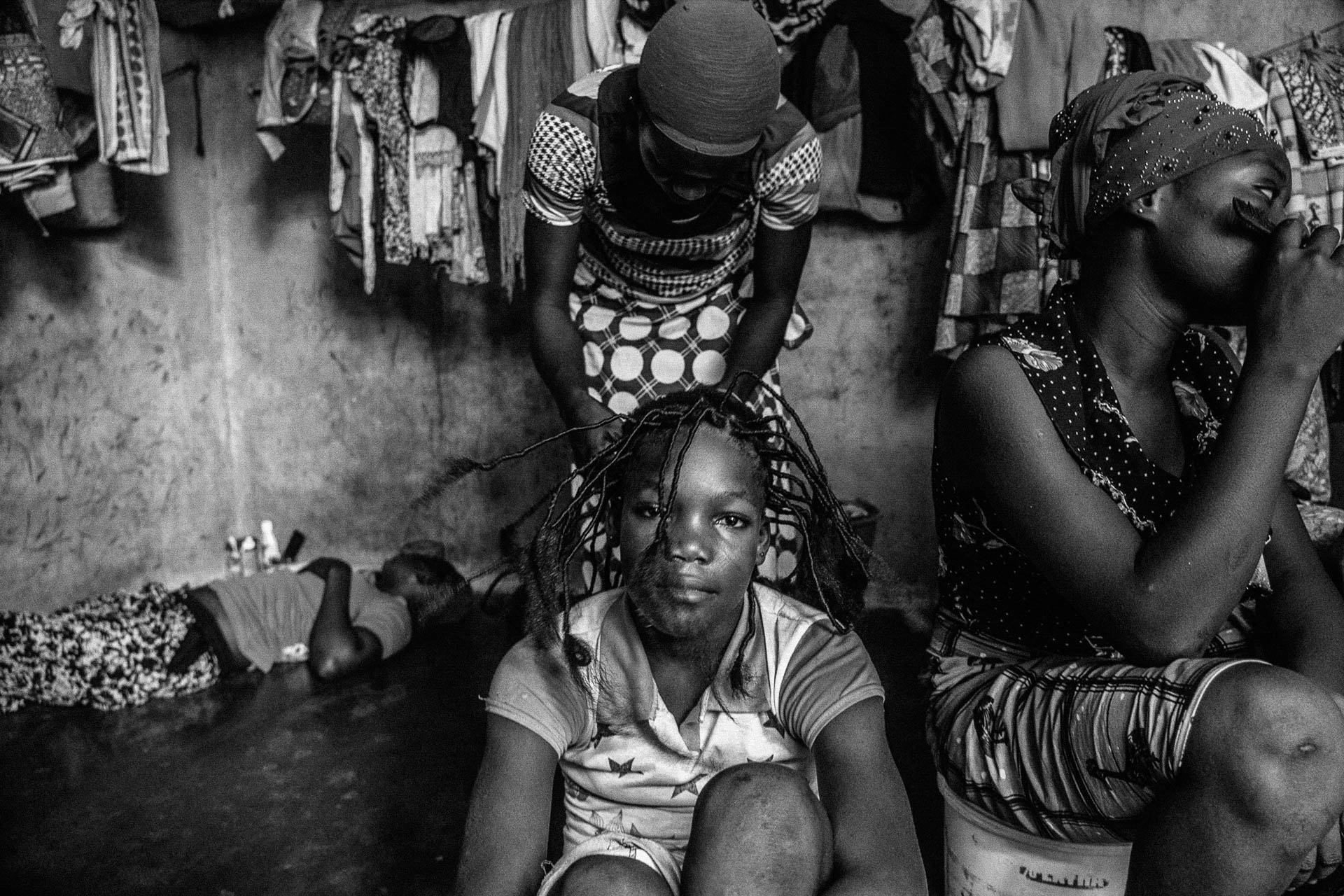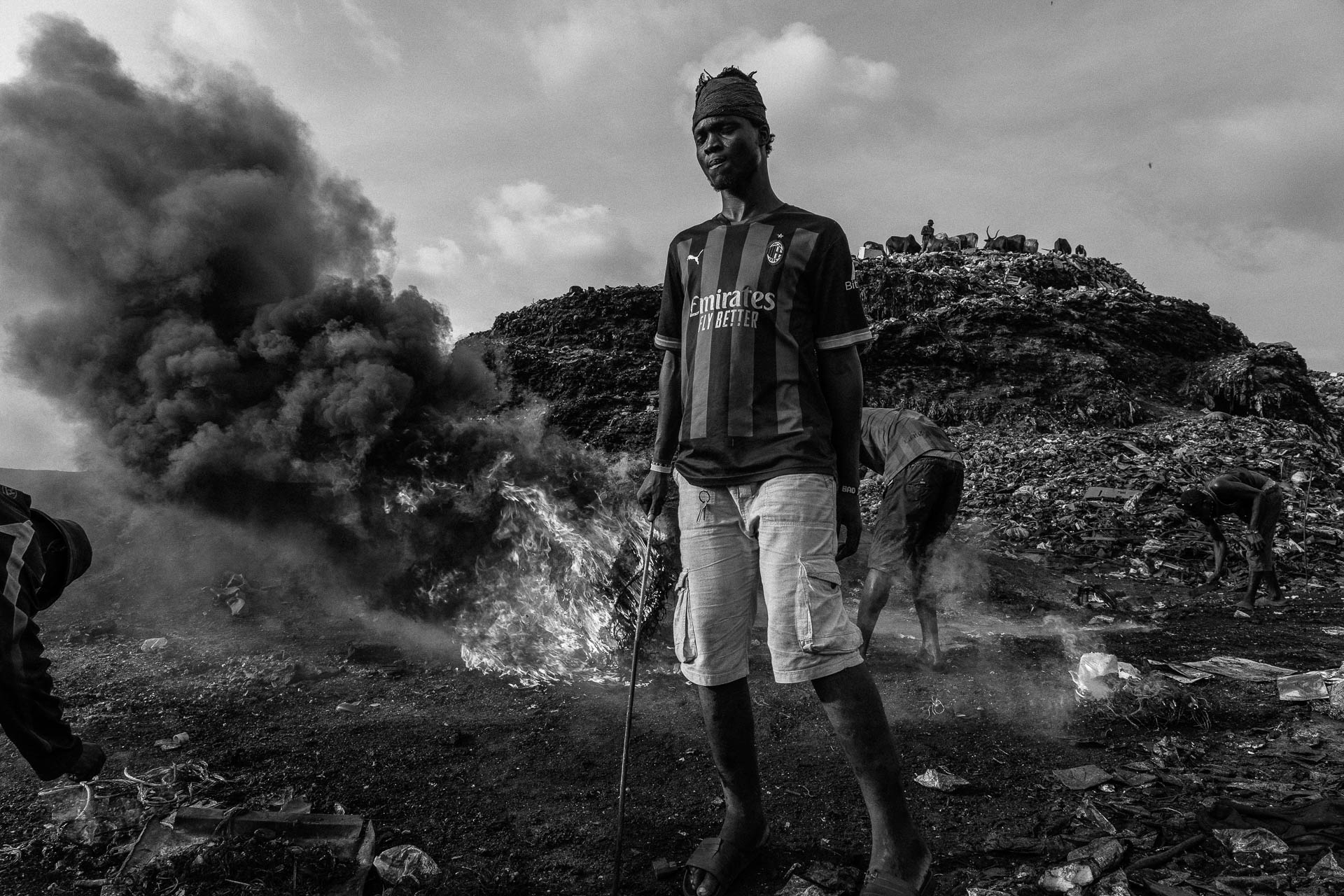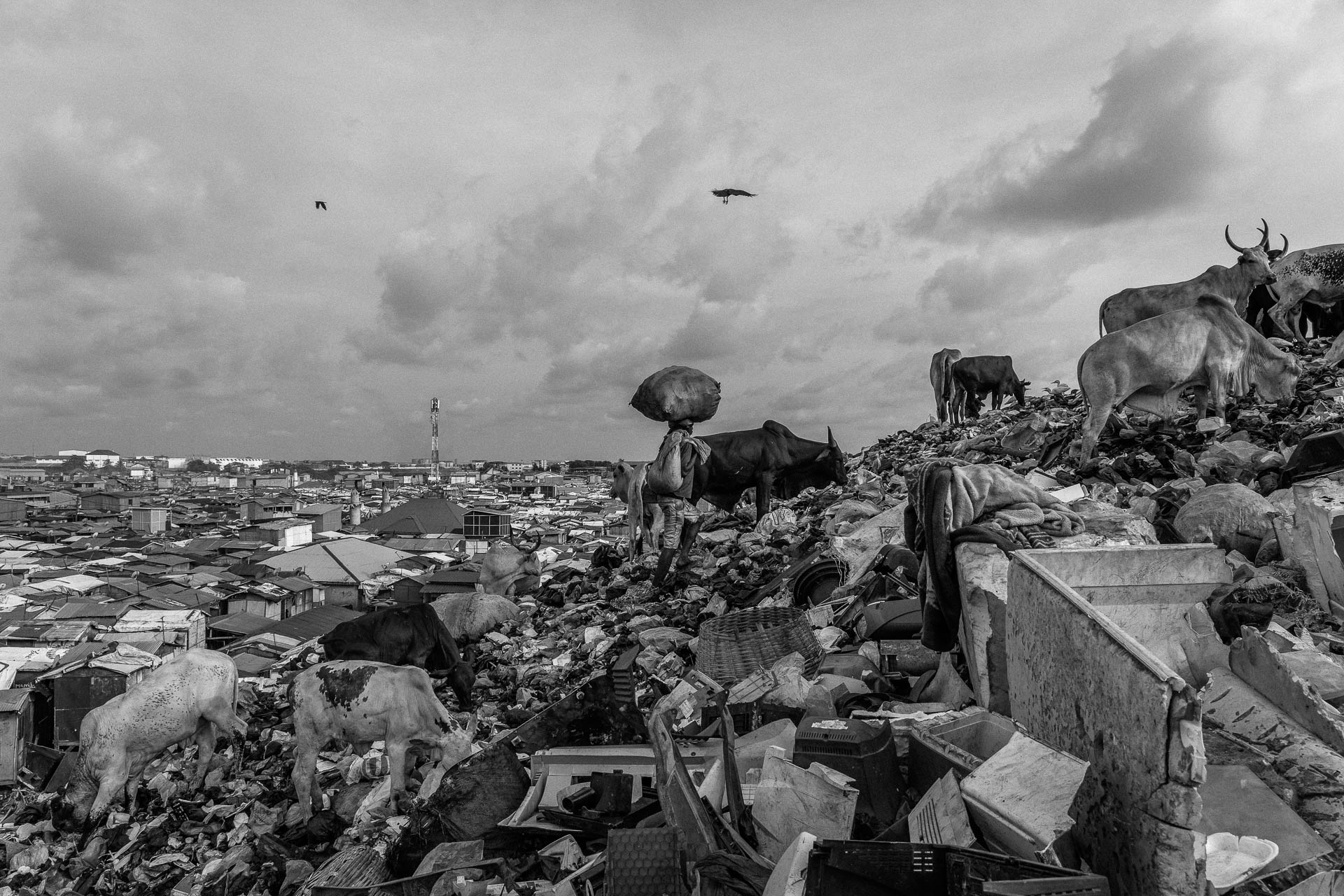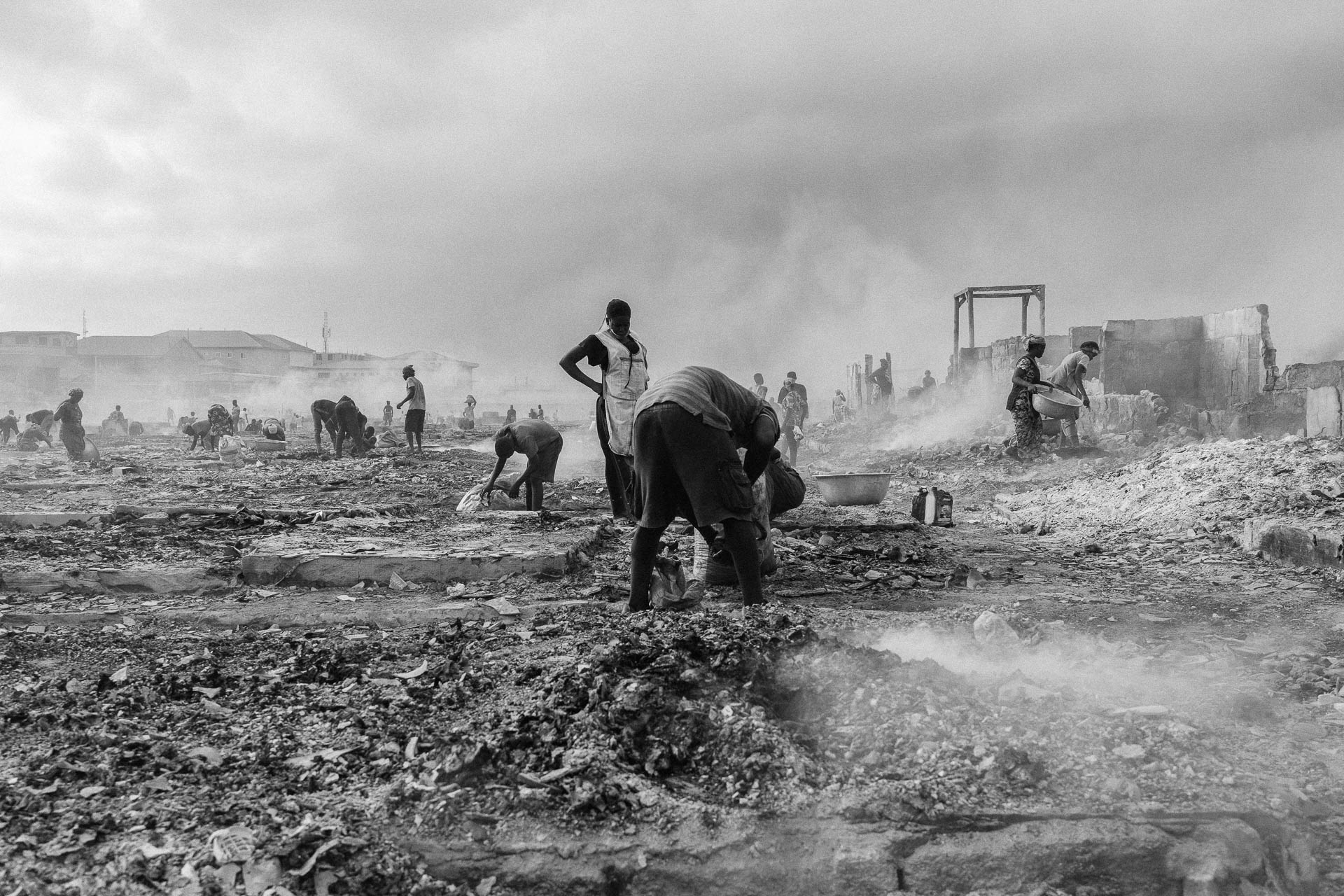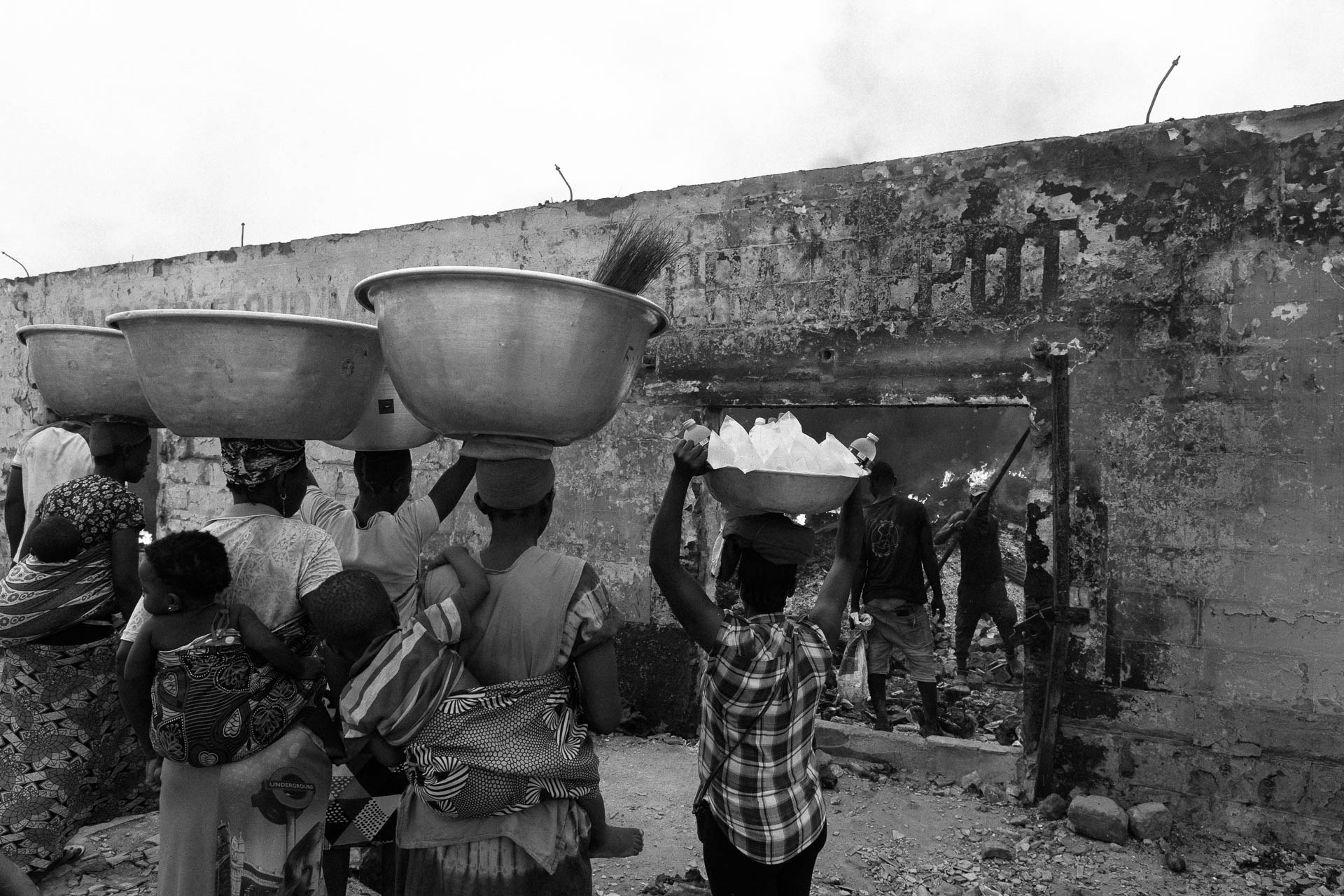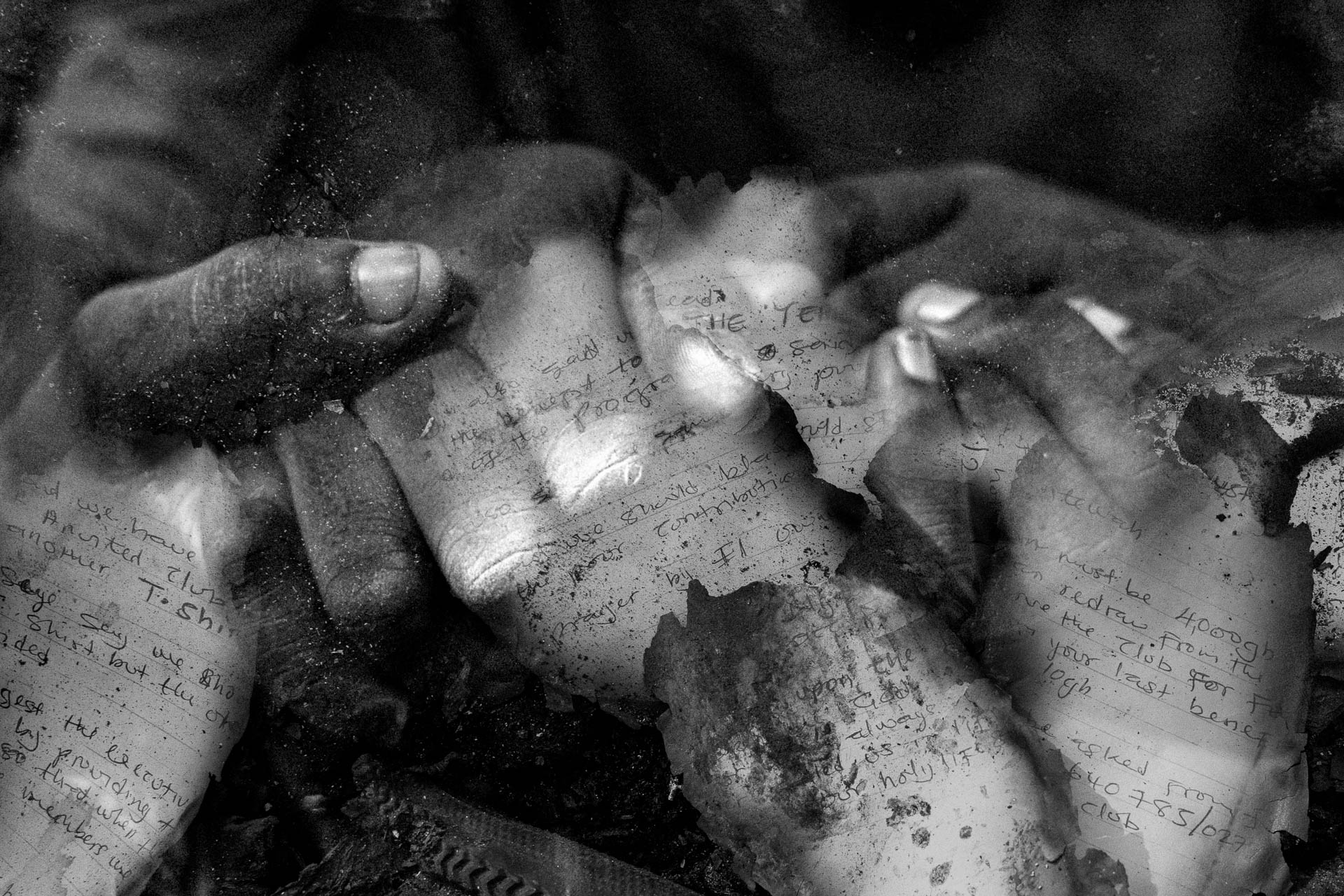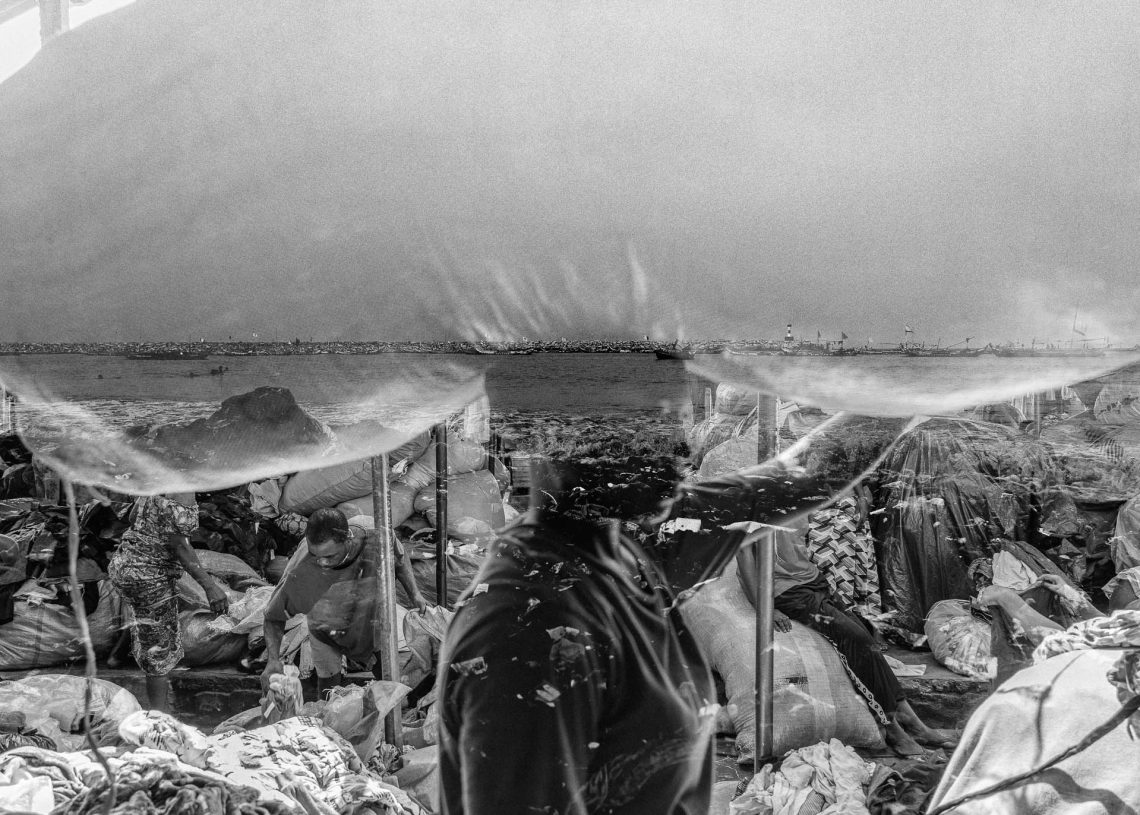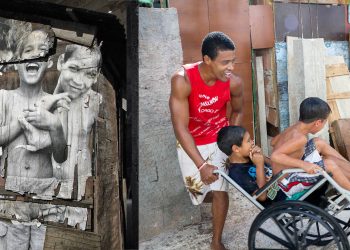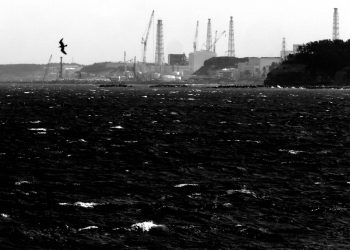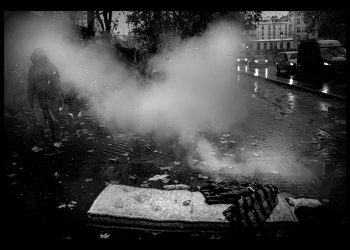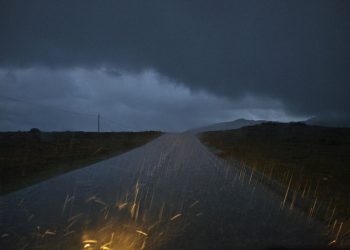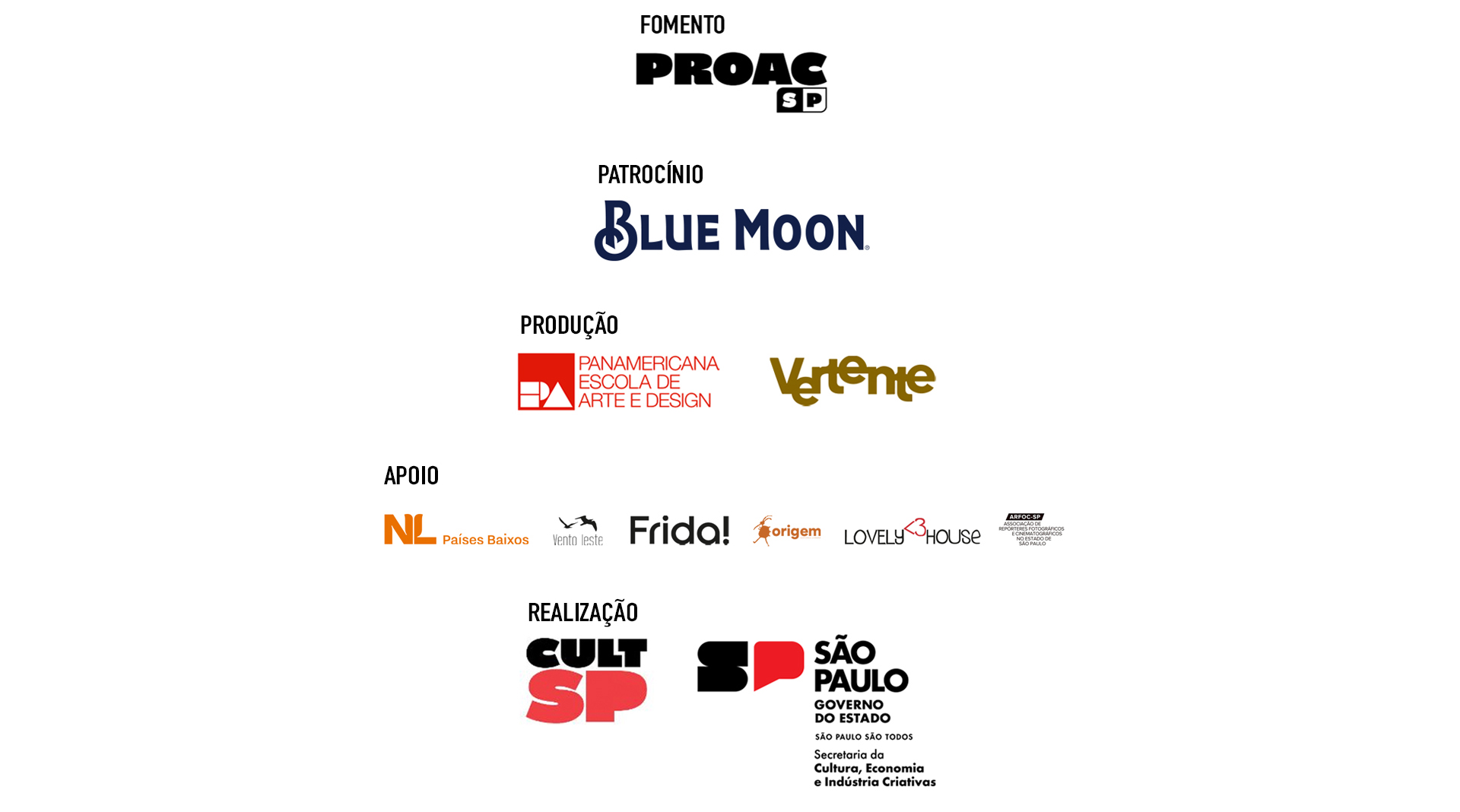Woven Fates is an ongoing multimedia documentary project exploring the devastating impact of textile waste pollution in Ghana. Through the stories of kayayei women—head porters who bear the physical and economic burden—the project reveals the intersection of environmental injustice, colonial legacies, and gender inequality while highlighting their resilience and fight for dignity amid hardship.
Driven by fast fashion overconsumption in the Global North, Ghana has become a major importer of second-hand clothing, known locally as obroni wawu or “dead white man’s clothes.” This influx is a direct legacy of fashion colonialism—where Western overproduction and consumer waste are offloaded onto the Global South under the guise of charity and trade. While Kantamanto market sustains thousands of traders, transporters, and tailors, the environmental toll is immense—low-quality garments quickly become waste, overwhelming landfills and polluting coastal ecosystems.
At the heart of this crisis are the kayayei—young women who migrate to Accra due to climate change, economic hardship, and lack of opportunities in northern Ghana. They earn meager wages carrying bales of second-hand clothes, sometimes weighing over 55 kg, leading to long- term spinal injuries. Their struggle embodies broader issues of gender inequality, poverty, and urban hardship.
Kayayei live in Agbogbloshie, Accra’s largest slum and one of the world’s biggest e-waste dumping sites, where textile and plastic waste compound pollution. Burning e-waste releases toxic chemicals, contaminating air, soil, and water, causing severe health conditions such as respiratory problems, cancer, and neurological disorders.
In early 2025, a devastating fire destroyed much of Kantamanto market, leaving over 10,000 businesses in ruins and countless livelihoods at risk. For the kayayei, this tragedy means losing their ability to support themselves and their families, adding to an already uncertain future. Through layered portraits of kayayei women, polluted landscapes of Accra’s beaches, and burned remains of Kantamanto market, Woven Fates exposes the intersection of fast fashion, colonial legacies, and environmental injustice, revealing how Western consumption patterns continue to exploit and burden nature and people in the Global South.
